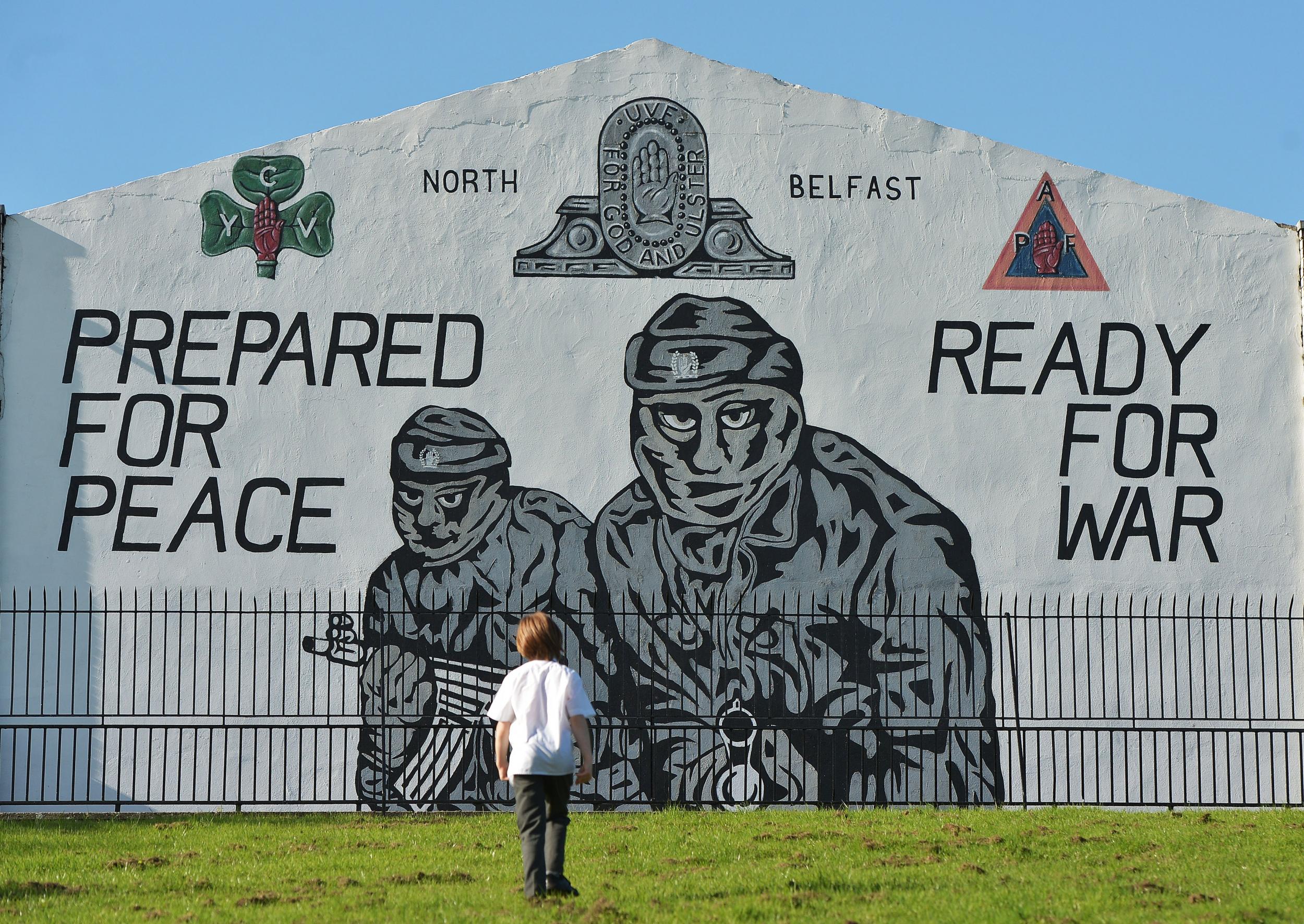UVF held secret talks with IRA to discuss prospect of federal Ireland, state document reveals
Papers did not specify whether UK would have a continued role in Northern Ireland

Your support helps us to tell the story
From reproductive rights to climate change to Big Tech, The Independent is on the ground when the story is developing. Whether it's investigating the financials of Elon Musk's pro-Trump PAC or producing our latest documentary, 'The A Word', which shines a light on the American women fighting for reproductive rights, we know how important it is to parse out the facts from the messaging.
At such a critical moment in US history, we need reporters on the ground. Your donation allows us to keep sending journalists to speak to both sides of the story.
The Independent is trusted by Americans across the entire political spectrum. And unlike many other quality news outlets, we choose not to lock Americans out of our reporting and analysis with paywalls. We believe quality journalism should be available to everyone, paid for by those who can afford it.
Your support makes all the difference.The UVF held secret talks with the IRA army council in 1988 to discuss the prospect of a federal Ireland, state papers have claimed.
According to the document, marked “secret” which was released under the 30-year rule, the meetings were facilitated by Father John Murphy, a chaplain in the Maze prison.
The memo, written to the taoiseach’s office in November 1988, said Mr Murphy was anxious to keep the meetings secret and listed the three main enemies of the talks as the Northern Ireland Office, the Royal Ulster Constabulary and the Democratic Unionist Party.
“Fr Murphy was frankly surprised at the speed with which events had moved and was particularly surprised at the signs of apparent flexibility being shown by the UVF in this exercise where they demonstrated a willingness to at least talk about a wide range of possible future arrangements for Ireland, not excluding concepts like a federal Ireland,” Brendan Mahon, of the Anglo Irish Division wrote.
Mr Mahon adds that Mr Murphy’s understanding of the concept of a federal Ireland was “based on the four provinces including a nine-county Ulster with a separate province-type arrangement for Dublin similar to the District of Columbia in the US”.
Federalism is a process by which a central and regional government share power over the same geographical region, which indicates Dublin would have had a say in a Stormont government.
The papers did not specify whether the UK would have had a continued role in Northern Ireland.
“John Murphy has now informed me on a highly confidential basis that these talks have now moved outside of the confines of the prison and that the army council of the IRA and the leadership of UVF have now agreed to separate talks with the chaplains outside of the prison,” Mr Mahon wrote.
The papers go on to state neither the UDA nor the INLA were involved in the talks, which were indicated to have started in the summer of 1988.
The UVF indicated to exclude the UDA due to a state of confusion within the organisation and “to their fears regarding the level of security force penetration of the UDA”.
However, it was indicated that former unionist leader James Molyneux knew about the talks and Mr Murphy “did not expect any trouble” from the UUP representative.
Mr Mahon indicated he felt Mr Molyneux had given the “OK” regarding the initiative.
Around the same time as the memo was written, November 1988, it was noted in the media that protests organised by unionists against the Anglo-Irish Agreement were less well supported than previous years.
Mr Murphy also claimed the flexibility being shown by the UVF was “indicative of the general uncertainty among loyalists as regards their future in a changed Anglo/Irish relationship”.
The religious hierarchy was also kept in the dark. The memo reads that the bishops were not aware the talks had moved outside the prison, and knowledge was confined to “the leadership of the IRA and UVF, two chaplains and now, ourselves”.
The support of the bishops was apparently being held off, until their backing was needed “to forestall any attempt by other political interests to derail the initiatives”.
Mr Murphy seemed to Mr Mahon “optimistic” about the prospects.
Press Association
Join our commenting forum
Join thought-provoking conversations, follow other Independent readers and see their replies
Comments